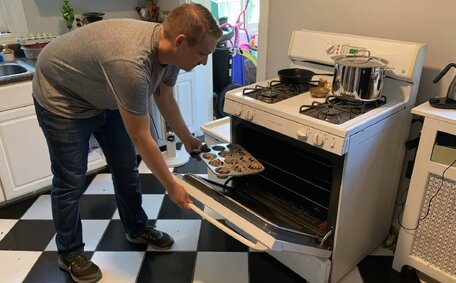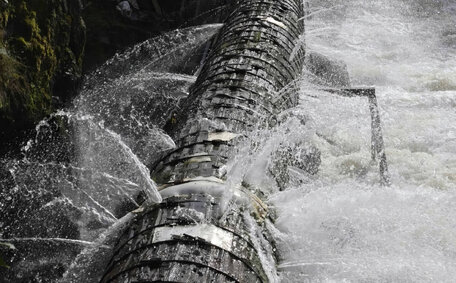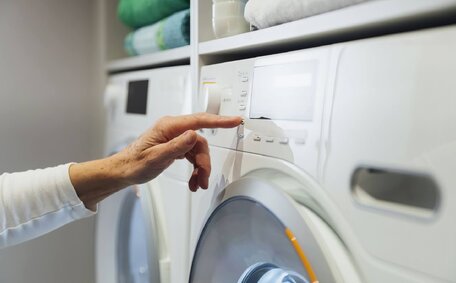Introduction to Gas Appliance Disposal
Disposing of old gas heaters and similar appliances responsibly is vital for environmental protection.
Gas appliances including gas stoves, gas heaters, hot water systems, and gas cylinder units necessitate meticulous attention to properly dispose your units responsibly. There are safety issues as well as environmental impacts to consider when getting rid of gas appliances from your home.
In this comprehensive guide, we will walk you through the recommended steps for safely and sustainably disposing of your cooker and any other gas appliances you need to remove. We’ll cover how to prepare different types of gas appliances for disposal, where you can recycle them, regulations to be aware of, and potential hazards if not done properly.
By adhering to the practices highlighted in this guide, you can ensure that retiring your gas heating, stoves, or other gas appliances is done in a way that safeguards your household and the environment. Continue reading for detailed instructions.
Identifying Old Gas Appliances Needing Disposal
Timely disposal of old gas appliances is essential for maintaining safety and operational efficiency in your home. Here are some telltale signs that a gas appliance in your home may need to give way get rid and disposed of properly:
- Age - each year counts as most gas appliances like stoves, ovens, heaters and hot water systems have a lifespan of 8-15 years; those that are no longer within this range should be reviewed for replacement.
- Frequent breakdowns - If your gas appliance is repeatedly malfunctioning, it likely means it’s reached the end of its usable life.
- Rust and corrosion - Check for visible rusting or damage, which diminish the integrity and make last the lifespan of gas appliances.
- High energy bills - An inefficient, older device can drain your energy resources at home, causing you to ponder how the cost to operate has increased.
- Odd smells or sounds - Unusual odours or noises can indicate a problem and safety hazard.
- Carbon monoxide leak - This dangerous by-product of incomplete combustion of natural gas, which can go undetected due to its odourless nature, mandates installation of CO detectors and annual appliance servicing.
- Pilot lights frequently go out - This may signal a problem with the gas line or appliance.
- Flames not burning cleanly - A yellow flame instead of blue can get you a hint that the gas appliance requires servicing.
If in doubt, engage a licensed gasfitter to assess appliances, including LPG cylinders. They can conduct safety checks and confirm if you need a new one. Safety should be the number one priority when maintenance is delayed on old gas appliances in your home.
Safety Precautions When Handling Old Gas Appliances
When handling your gas appliances that are ready for disposal, safety should be your top priority. Here are some key precautions to take:
- Wear protective gloves and eye wear in case of sharp edges or leaking chemicals.
- Open windows and doors to ensure a flow of fresh air inside the home, keeping circulation optimal.
- Part of a thorough chemical cleanout includes using soapy water to check carefully for any emerging bubbles that may indicate gas leaks.
- Never leave potential risks unmanaged; avoid dragging the appliance which could have been sitting for a while across the floor to prevent sparking.
- Carefully read the owner’s manual, although i don’t ignore the safety warnings and any special disassembly instructions.
- Have appropriate tools ready for disconnecting or dismantling the unit.
- Do not try to remove the unit on your own if it is too heavy or hazardous.
- Seek professional help, such as licensed gasfitters, to safely dispose of surplus old gas appliances.
- Keep the space clear of clutter, like items from your vehicle and children/pets, when manoeuvring the appliance near gas lines where a cylinder can be present.
By adopting prudent measures, it is feasible to arrange for the collection and disposal of appliances that are no longer in use. Check out our safety guidelines to protect yourself and your home when disposing of gas appliances.
Proper Disposal Methods for Different Appliance Types
When you need waste collection services for your household items such as gas appliances, the best approach depends on the type of appliance, like a gas cooker:
Stoves and Ovens
Gas cookers, your white goods like washing machines, and your gas stove are predominantly metallic and thus are frequently recyclable. Initially remove any plastic elements, wiring, or insulation to ensure your old appliance components are disposed of appropriately.
Ensure the gas canister is completely cooled and exercise caution when disconnecting it from the gas line.
- Most councils accept gas stoves, your oven, and old white goods made of metal plastic composites for metal recycling, though it’s sensible to inquire about potential fees for larger items.
Hot Water Systems
- Water heaters and hot water systems contain a steel tank, copper piping, insulation, and some electrical components. The steel tank, often likened to larger gas canisters, can be recycled.
- Drain the tank completely and remove attached piping and wiring. Recycle copper separately.
- Check with your local council regarding requirements for gas cylinder disposal and how to properly manage it in your area.
Gas Space Heaters
Portable units such as your air conditioners and gas heaters often include metal and butane canister elements, and batteries are not included therefore do not require removal for recycling.
- Metallic parts like steel, often from a disposable gas canister, can generally be recycled, while plastics might necessitate disposal at a waste facility.
- Heed all guidance assuring you don’t compromise safety when disconnecting the unit from the gas outlet.
Air Conditioners
- Your split system air conditioners and dryers air handling units require special attention due to the refrigerants they contain, which must be securely extracted and reclaimed as per legal requirements.
Contact a qualified technician to safely handle the disposal of refrigerants like Freon, preventing leaks.
- Once refrigerants are removed, the metal components can be recycled.
Always consult local guidelines for proper appliance disposal; aim to recycle your old white goods and other materials whenever feasible. Safety must come first when you aim to get rid old gas appliances.
Finding Local Recycling and Disposal Services
- Check with your local council - Most councils have dedicated waste facilities, transfer stations or recycling centres that accept old appliances and gas cylinders. a disposal fee may apply.
- Contact a licenced scrap metal recycler - They accept a diverse array of metal items, from stoves to hot water systems. Several provide complimentary pick-up services.
- Search online directories - Online services like RecyclingNearYou.com.au let you search for recyclers and waste facilities in your local area that take gas appliances.
- Ask retailers about take-back programmes - Some gas appliance retailers and brands offer recycling programmes where you can bring back the old unit when buying a replacement.
- Look into appliance removal services - Some junk removal companies specifically handle appliance disposal and recycling.
When using disposal services, confirm the accepted waste types and associated fees to start the disposal of your old gas appliances. Additionally, confirm they are a licenced, sanctioned entity adept at managing hazardous waste from appliances. with the right local service, you can keep all types of old appliances out of landfills.
Check with your local council - Most councils have dedicated waste facilities, transfer stations or recycling centres that accept old appliances and gas cylinders. a disposal fee may apply.Contact a licenced scrap metal recycler - They accept a diverse array of metal items, from stoves to hot water systems. Several provide complimentary pick-up services.Search online directories - Online services like RecyclingNearYou.com.au let you search for recyclers and waste facilities in your local area that take gas appliances.Using a Professional for Removal and Disposal
Attempting DIY removal comes with considerable risks.
Hiring a licenced gasfitter to handle the entire process ensures appliance disconnection, transport and disposal is done safely. Professionals like Erskine Park Plumbing have extensive training and follow all regulations for the secure handling of old gas appliances.
A gasfitter will use proper procedures to disconnect your appliance from gas lines, ventilate any residual gas, and seal outlets to prevent leaks. They can safely extract any refrigerants from AC units as well. The gasfitter will then carefully dismantle the unit, sorting recyclable materials for proper disposal.
In terms of disposal, professional services transport your appliance to authorised recycling centres or waste facilities. All hazardous substances are managed in compliance with environmental regulations. Effective recycling programs for gas appliance materials help minimize landfill waste.
Don’t take risks doing it yourself. Have the specialists at Erskine Park Plumbing offer a no-obligation quote to handle the removal and disposal of your appliance in an eco-conscious way. We make the process hassle-free while keeping homes and the environment protected.
Attempting DIY removal comes with considerable risks.
The gasfitter will then carefully dismantle the unit, soenhouse gases that deplete the ozone layer if released.
The global warming potential of these substances exceeds that of carbon dioxide significantly. Even minimal releases can have an outsized effect on climate change.Gas left in cylinders, canisters and appliances can also escape into the atmosphere and cause air pollution.Appliances sent to landfills can leak hazardous materials like mercury, lead and asbestos into the ground and waterways over time.Valuable metals like steel, aluminium and copper are wasted instead of being recycled if appliances end up in landfills.Thus, utilising professional disposal services to correctly capture and neutralise harmful refrigerants, and to dispose of old units at certified recycling establishments is essential. With attention to detail, we do your part by safely recycling old gas appliances, keeping hazardous materials away from the environment.
This mitigates the environmental damage and creates a circular economy.
Improperly disposing of old gas appliances can have serious negative impacts on the environment:
Refrigerants and foaming agents commonly used in appliances like air conditioners and fridges are greenhouse gases that deplete the ozone layer if released.The global warming potential of these substances exceeds that of carbon dioxide significantly. Even minimal releases can have an outsized effect on climate change.Gas left in cylinders, canisters and appliances can also escape into the atmosphere and cause air pollution.Appliances sent to land over time.Valuable metals like steel, aluminium and copper are wasted instead of being recycled if appliances end up in landfills.Regulations Around Gas Appliance Disposal
There are important regulations to follow when disposing of gas appliances in Australia:
- A licensed technician must safely extract refrigerant gases like CFCs for disposal, according to the Ozone Protection and Synthetic Greenhouse Gas Management Act 1989.
- In New South Wales, the Environment Operations (Waste) Regulation states that you must dispose gas cylinders in a manner preceded by evacuating the gas from old cylinders, necessitating a test station to confirm emptiness where possible.
- Never put hazardous materials such as gas appliances and gas cylinders in household rubbish bins destined for landfills; it’s illegal.
- Local councils offer ways to drop off unneeded gas appliances with rules about kerbside collection and provisions for dropping off items at designated waste facilities. Fees typically apply.
- The NSW EPA provides guidelines on transporting and recycling gas bottles. Cylinders should have their cylinder valve removed before being recycled.
- Non-compliance with gas appliance disposal regulations can result in penalties of up to $1 million for individuals and $5 million for corporations.
To ensure full compliance with the law, Erskine Park Plumbing recommends using professional disposal services. We stay up-to-date on all regulations for the safe, legal removal of gas appliances in your local area.
Preparing Your Appliance for Disposal
Proper preparation is a key step before disposing of a gas appliance. Here are some tips for ensuring there no hurdles in getting your appliance ready to be removed and recycled:
- Start by shutting off the gas supply, ensuring full disconnection from gas or electricity sources by turning valves clockwise.
- In cold weather, ensure the appliance has cooled fully before handling, if it was recently in use.
- Use suitable cleaning solutions to eliminate dirt, grease, or debris from the appliance. This simplifies disassembly and streamlines recycling.
- Remove any plastic parts, knobs, shelves, or removable components and set aside separately.
- Take out any batteries from remote controls or displays. Batteries should not be disposed of with the appliance.
- Check for any gas leaks by spraying soapy water on connections and looking for bubbles. Contact a professional if leaks are detected.
- Should you need to dispose of your old gas bottle or cylinder, remove your unit only after ensuring it’s completely depleted.
- Clearly label any hazards like sharp edges to protect anyone handling the appliance.
Following these steps is the best way to safely dispose of your gas appliance, maximising safety and minimising environmental impact when it’s picked up for recycling and disposal. With some simple preparation, you can ensure the process goes smoothly.
Potential Hazards of Improper Disposal
Attempting to dispose of old gas appliances without proper precautions can lead to some serious hazards that put your safety at risk:
- Gas leaks - Residual gas left in tanks, lines or cylinders can leak out and pose an explosion risk. This can occur if valves are not correctly shut off.
- Inhaling fumes - Toxic fumes from chemicals still inside the appliances can cause serious health issues if inhaled without proper ventilation.
- Fire hazard - Flammable refrigerants, insulation or waste materials may ignite if exposed to sparks or heat during handling.
- Mercury exposure - Mercury found in some gas appliance switches and thermostats can be hazardous if released.
- Physical injuries - Sharp edges or heavy materials involved in moving appliances can lead to cuts or crush injuries if not careful.
- Environmental contamination - Hazardous chemicals from the unit can pollute landfills and waterways if not properly contained and destroyed.
Adhering to safety procedures and recycling your old gas appliances through approved facilities is crucial. Avoid DIY disposal methods due to high risks of fire, gas leaks, injury, and environmental harm. Rely on professionals to avoid hazards and ensure the safe handling of your old appliances.






